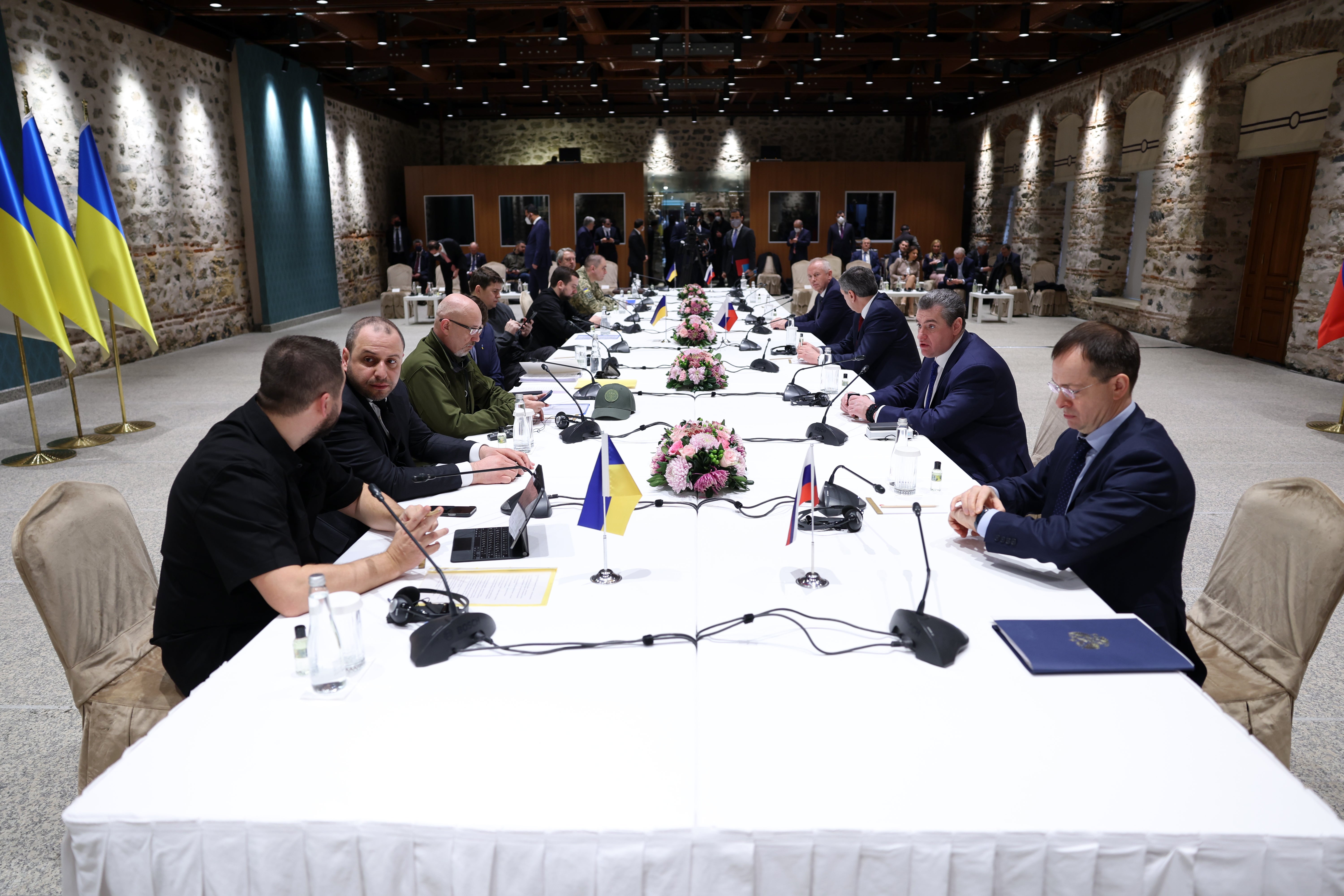Despite the Russia-Ukraine peace talks, this invasion only ends when Vladimir Putin decides it is over
The negotiations themselves are bizarrely constituted and the violence in Ukraine goes on as it has for weeks, writes Sean O’Grady


Only a month ago Vladimir Putin was more than likely dreaming of visiting Kyiv as its conqueror, the city's mythical neo-Nazi government and its renegade president Volodymyr Zelensky driven into exile, by a populace grateful to Russia for their liberation.
Now the Russian army has faced numerous humiliations by far smaller Ukrainian forces, with its soldiers facing accusations including the use of rape as a weapon of war.
So, far from occupying Kyiv and ousting Zelensky, the Ukrainian leader has been transformed into a Churchillian hero on a global scale, and the deputy defence minister of Russia, Alexander Fomin, has promised to “fundamentally cut back” operations near the capital and around Chernihiv, also in the north of the country. It is tantamount to an admission that the “special military operation” cannot succeed on its original terms.
Fomin says he wishes to “increase mutual trust” at the talks in Turkey aimed at ending the fighting. In reality, the disorganised and poorly-led Russian armed forces have seemingly run out of road, and, as they conceded the other day, are concentrating on the east and south of Ukraine instead, possibly with a view to “altering the facts on the ground” – with the possibility of permanently occupying the territory after a ceasefire.
Despite such progress, and Zelensky’s long-standing offer to give up possible Nato membership (never a strong probability in any case), the chances of a lasting peace settlement remain slim. Ukraine cannot agree to any forced loss of sovereignty and its territory in some unequal treaty brokered by Turkey, or anyone else. This is for three reasons. First, Ukraine remains committed to EU membership as something that is an expression of its sovereignty and destiny as a modern western liberal democracy. Second, Zelensky has rightly committed to put any peace agreement to his people in a referendum, and they appear more hostile than ever to the notion of accommodating Putin. And third, any partition of Ukraine would inevitably result in deportations (as may be underway on a small scale from Mariupol) and worse.
There is another party to the peace talks, as well as Russia, Ukraine and Turkey – the wider international community and the UN. For the sake of the peace, Putin cannot be rewarded for his aggression. Many in the west will not wish to drop sanctions and economic warfare for such a deal. Will Germany resume its purchases of oil and gas from Russia and unfreeze the new pipeline? It seems unlikely. Will the international community forget the investigations into war crimes? Who will guarantee the borders of an independent Ukraine? And who will pay to rebuild Ukraine?
As for the talks themselves, they are bizarrely constituted. The claimed poisoning of Roman Abramovich and some of the Ukrainian negotiating team remains a mystery. There is obviously suspicion directed towards Russia, but with the Americans suggesting it was a result of relatively benign “environmental factors”. It’s not clear why Abramovich was involved in the negotiations in the first place; what, if anything, would have motivated such a poisoning; and what he is doing back at the present session of talks in Turkey. President Erdogan of Turkey has done better than most observers thought possible in sponsoring these talks, and he has equally deftly balanced Turkey’s historic regional rivalry with Russia and his own affinity with President Putin as a fellow nationalistic hardman. Turkey remains sluggish in implementing sanctions on Russia, which has at least made its role of peace broker easier.
Meanwhile, the war goes on as it has for the past few weeks. The Russians will continue trying to pound the innocent people of Ukraine into submission but in fact strengthening their unity and patriotic determination to fight. The Ukrainians will continue to fight with a frustrating lack of vital military aid from the west, able to resist and counterattack, but never powerful enough to drive the Russians back to their own country.
It is as true as it was at the start of the attempted invasion that this war will only end when Putin decides it will. At least now there are some signs that he is getting ready to declare a victory and call it a day – but who can trust him?



Join our commenting forum
Join thought-provoking conversations, follow other Independent readers and see their replies
Comments